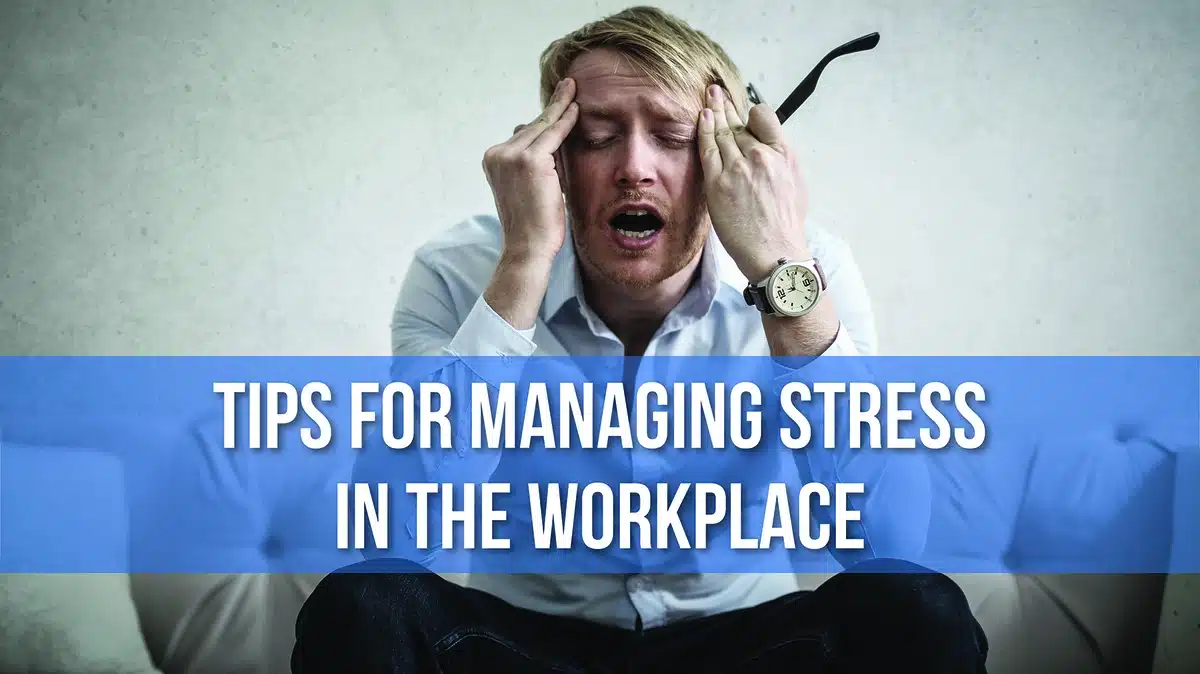Managing Stress in the Workplace
We’re supposed to feel stress from time to time, it’s our body’s way of responding to danger and demand. We’re not, however, supposed to feel stress all or even most of the time.
Too much stress, especially the chronic variety, can lead to illness, and mental and physical health problems. This means that occasionally feeling stress at work is normal, but feeling stress every day isn’t – and should be avoided.
As an employer, you want to ensure you’re providing the best environment for your employees to keep them as happy and healthy as possible – for their sake, and yours. It’s impossible to eliminate every stressor within the workplace, but some common stressors can be, and the rest can be managed. Check out these best practices to help make your work environment less stressful:
Encourage time to rest and recharge.
We all need breaks to be at our best, so not only giving permission but encouraging employees to take time to rest and recharge is a great way to reduce stress. It also has the added benefit of increasing productivity and overall employee health and happiness.
Encourage your team to take their allotted daily breaks during their shifts. Also, create a culture (and the matching policies that make sense for your company such as Paid Time Off) that encourages time away from the office, whether it’s taking a day or a week. Studies show that time away actually increases productivity when employees return fully relaxed, recharged and ready to work.
Finally, create an environment where your employees feel safe and comfortable speaking up if they’re feeling stress and need time to rest and recharge. If your team is feeling too much stress, you don’t want to add to that by making them feel they can’t or shouldn’t speak up.
Promote support networks and camaraderie.
Humans are not meant to be solitary, so having a good support system within the workplace is essential to reducing stress. Ensure your team understands it’s alright (and even encouraged) to develop good relationships with each other outside of strictly work-related matters.
Allow and participate in conversation about non-work activities, and facilitate relationship development through team building activities. Fostering good relationships within your team allows them to better support each other and enjoy being at work, which helps to reduce stress.
Provide benefits that make sense for your business and employees.
A big potential stressor is mental and physical health, and the financial burden that may come with it. Providing benefits that help employees manage these stressors better ensures that stress won’t become a major drain on either of you in the long run.
One of the most common and necessary benefits an employer offers is Healthcare Coverage. There are many options available, so you should be able to find an option that makes the most sense for your business and employees. Another great option is offering an Employee Assistance Program (EAP), giving employees access to experts who provide confidential assistance for highly stressful matters such as mental health conditions, financial problems, relationship troubles, and more.
Always act in good faith.
There are times when doing the right thing causes stress. For employers and managers, it might be disciplinary action, a poor performance review, or economic-related layoffs and furloughs. For employees, it might be meeting a hard deadline, asking a coworker to cover a shift, or providing honest feedback to a peer.
At some point, stress is going to happen… and that’s okay. The important thing is to approach decisions that may cause stress in good faith, rather than trying to avoid the stress completely – this may accidentally cause even more stress in the long run. Acting in good faith demonstrates you genuinely care about your employees’ (or coworkers’) success and wellbeing.
Stress is an inevitable part of life, and in fact, serves to protect us in the long run by preparing us to deal with demands and dangers. Ongoing stress, however, can be detrimental to our mental and physical health and wellbeing.
Because of this, it’s important for employers to work to reduce and eliminate stress within the workplace to the best of their ability. While it’s impossible to eliminate it completely, it’s easier than you might think to reduce and manage it in order to better ensure success for your team and company.








